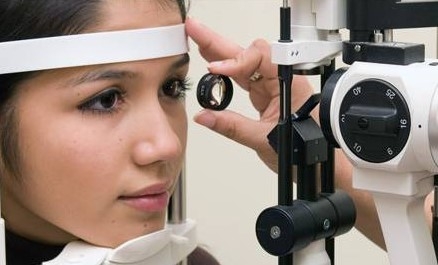Ensuring your long-term vision health requires more than just routine eye care; it involves prioritizing a full eye check up. Regular eye exams are crucial not only for maintaining good eyesight but also for detecting underlying health issues. This comprehensive evaluation, often referred to as a complete eye exam, goes beyond simple vision testing to assess overall eye health and detect potential problems before they become severe.
The Importance of a Full Eye Check Up
Comprehensive Assessment of Eye Health
A full eye check up includes various tests and evaluations that provide a complete picture of your eye health. Unlike basic vision screenings, this thorough examination helps in:
-
Detecting Early Signs of Eye Diseases: Conditions such as glaucoma, macular degeneration, and diabetic retinopathy can be identified early, allowing for timely treatment.
-
Evaluating Visual Acuity: Ensures that any changes in vision are addressed promptly.
-
Assessing Eye Pressure: High eye pressure can indicate glaucoma, a condition that can lead to vision loss if untreated.
Benefits Beyond Vision Correction
Regular full eye check up offer benefits beyond just correcting vision:
-
Health Monitoring: Eye exams can reveal systemic conditions like diabetes and hypertension, as the eyes are often the first to show signs of these diseases.
-
Personalized Eye Care: Provides an opportunity for eye care professionals to recommend specific treatments or lifestyle changes to improve overall eye health.
-
Prevention of Vision Loss: Early detection and management of eye conditions can prevent severe vision impairment or blindness.
What to Expect During a Full Eye Check Up
Key Components of the Examination
During a complete eye exam, you can expect several key tests and evaluations:
-
Visual Acuity Test: Measures how well you see at various distances.
-
Refraction Test: Determines the prescription needed for glasses or contact lenses.
-
Eye Pressure Measurement: Assesses intraocular pressure to screen for glaucoma.
-
Ocular Health Evaluation: Includes a detailed examination of the retina, cornea, and optic nerve.
Preparing for Your Eye Check Up
To ensure the best results from your full eye check up:
-
Bring Your Eyewear: If you wear glasses or contact lenses, bring them along for the exam.
-
Prepare a Health History: Be ready to discuss any current medications or health issues.
-
Allow Time for Dilation: Some exams may involve pupil dilation, which can temporarily affect your vision.
Conclusion
Prioritizing a full eye check up is essential for maintaining long-term vision health. This comprehensive evaluation not only helps in detecting and managing eye diseases but also plays a vital role in monitoring overall health. By committing to regular complete eye exams, you can safeguard your vision and ensure early intervention for any potential issues. Don’t wait until you notice problems with your eyesight—schedule your eye check up today to keep your vision clear and your eyes healthy.



